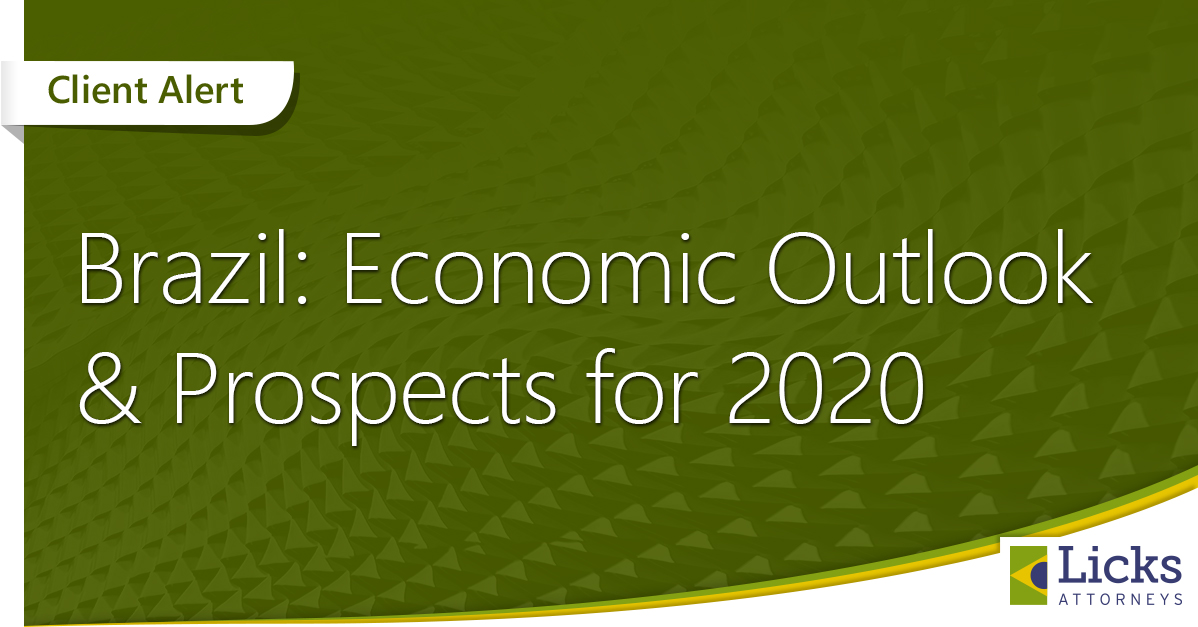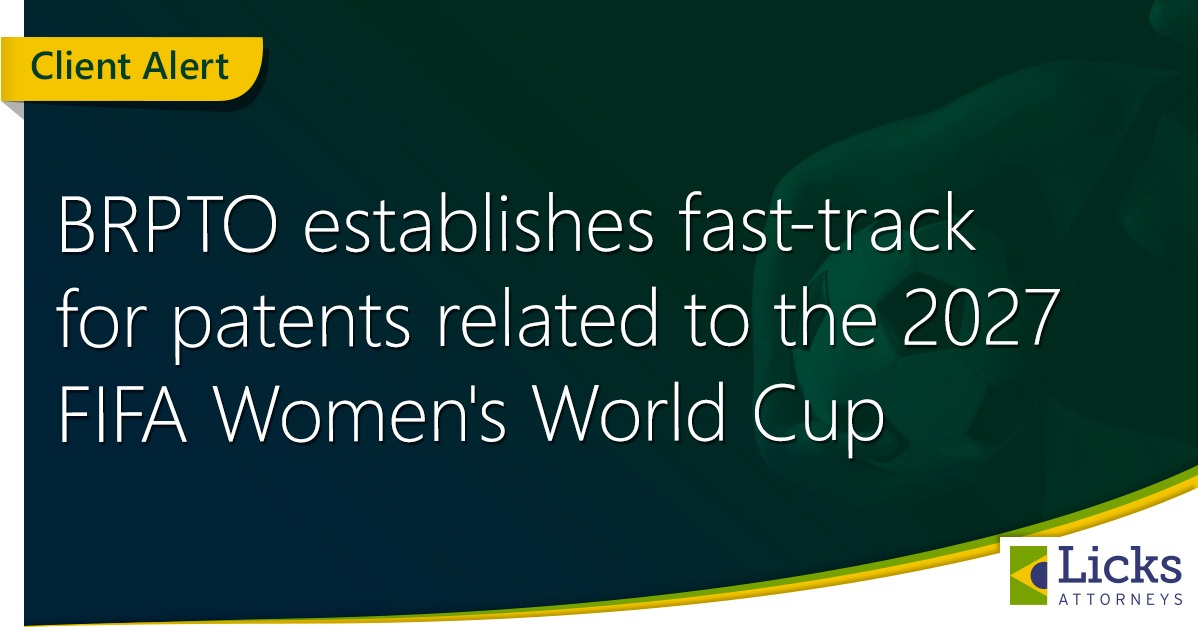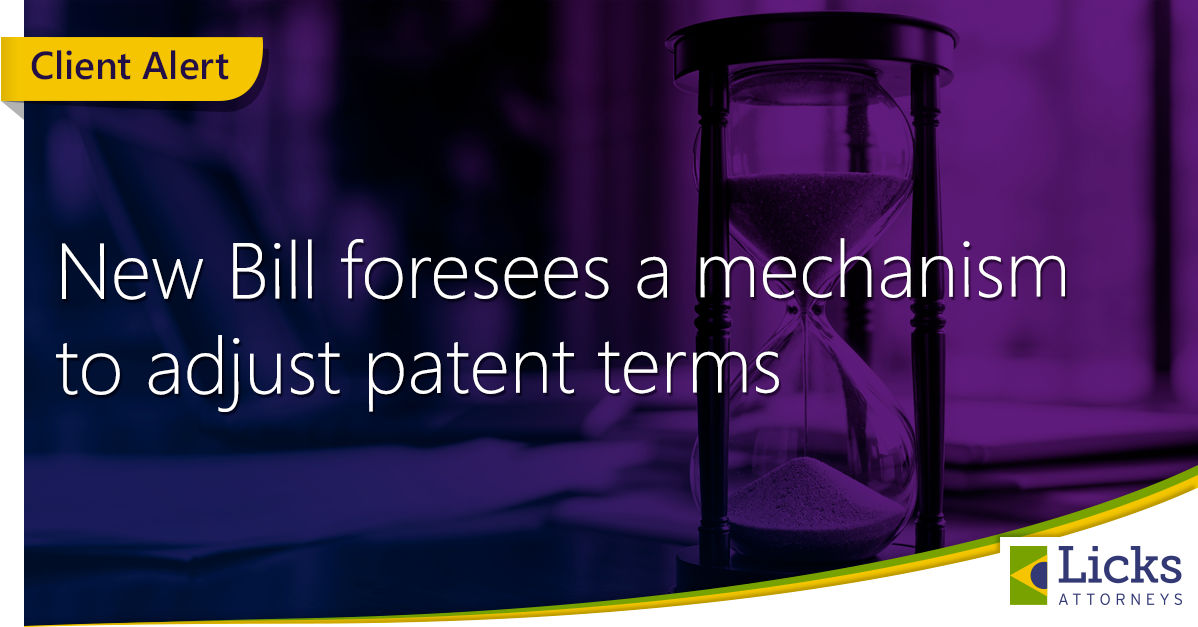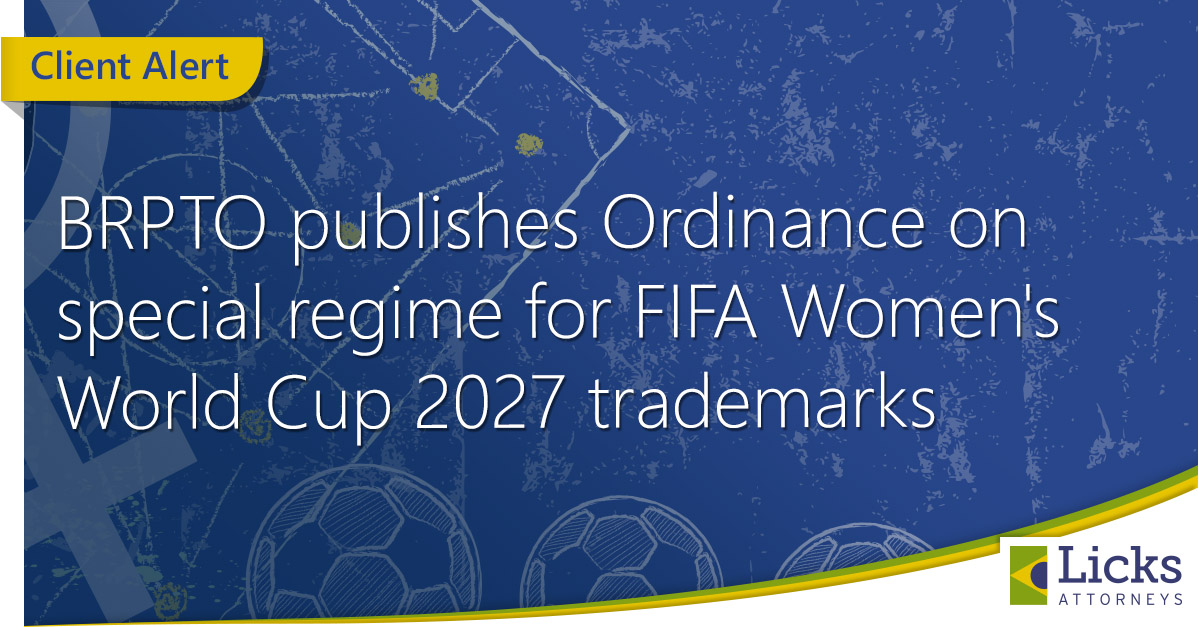BRAZIL: ECONOMIC OUTLOOK & PROSPECTS FOR 2020

The first year of the new administration brought relevant improvements to the Brazilian economic and institutional context. The Government has successfully started implementing its agenda of structural reforms, despite some challenges presented by the Legislative Branch.
There is a significant concern with improving the business climate and facilitating the development of economic activities in the country. In addition to this concern, Brazil's regulation is going through a changing process to align with the guidelines established by the Organization for Economic Cooperation and Development (OECD). In 2019, the accession to the organization was elevated to a priority level in Brazil’s international agenda.
For 2020, the Government is going forward to put in place a set of reforms and measures to speed up growth, increase potential output, and improve the business climate.
In that sense, the new administration has been adopting measures to promote institutional and regulatory simplification, strengthening legal certainty and reducing bureaucracy. In 2019 alone, over 2,000 decrees were repealed to simplify the access to Brazilian law.
The main objective of the Government's economic agenda is to keep on with fiscal adjustment. Savings brought by several implemented measures are already contributing to positive results. One example is the reduction in the public sector's fiscal deficit that reached its lowest level for the past 5 years, with a nominal decrease of 9% and a primary decrease of around 19%.


A POSITIVE PERSPECTIVE
After experiencing a substantial recession between 2015 and 2016, the Brazilian economy is recovering gradually. Inflation is down and under control, and Brazil's CentralBank is focusing on growth. The Selic interest rate has reached its lowest level in history, and the employment rate has been rising together with wage and private consumption.
After a series of reductions on the revisions of the GDP projections since the beginning of the economic recovery that started in Q1 2017, all the revisions made by the Ministry of Economy on Brazil's GDP projections have constructed a rising pattern during2019 and a rising trend for 2020.
The administration is already implementing reforms, privatizations, and releasing funds. These measures will allow establishing sustainable growth, opening the way for greater resource availability and job creation.
Mostly due to an increase in consumption, caused by factors such as an easier withdrawal of funds in individual unemployment insurance accounts, the Ministry of Economy raised its GDP growth projections to 2.4%.
Following the approval of the Pension Reform, Brazil's Credit Default Swap (CDS) grade, one of the most relevant indicators of a country's investment credibility, decreased at its lowest level in the past 6 years.

These optimistic prospects are lifting back market confidence in Brazil and supporting investments, which is also moored by better financial conditions. As stated in a report released by the United Nations Conference on Trade and Development (UNCTAD), Brazil received more than USD 75 billion on foreign investments in 2019. The country is the world’s fourth-largest foreign investment destination of the year.
In 2019 Brazil received more than USD 75 billion on foreign investments. The country is currently the world’s fourth largest foreign investment destination in the world.
Also, according to the National TreasurySecretariat, the progress of Brazil's Reform Agenda was corroborated by the decision of the rating agency Standard & Poor's to revise the outlook of the country's credit rating from stable to positive. In its report, S&P mentioned the fiscal adjustment measures and the return of growth.
BRAZIL’S STRUCTURAL REFORM AGENDA
After the approval of the Labor Reform by the previous administration back in 2017, the Pension Reform was approved byCongress in October, which was considered a Government's significant achievement and a clear sign of Brazil's commitment to its solvency. Together with an austere orientation, the Brazilian Government is continuously pushing forward the structural reforms’ agenda. The Tax and the Administrative reforms are expected to be sent to the National Congress by February. The Minister of the Economy, Paulo Guedes, confirmed the information. The prospects for approving the other proposed reforms in Congress are favorable. According to the Speaker of the House of Representatives, Rodrigo Maia, all reforms that are under discussion will be approved.

OTHER IMPORTANT MEASURES
The Government is putting effort into adopting a more competition-friendly domestic regulation. At the Government's 300-Day Ceremony in November, President Jair Bolsonaro announced the launch of the Mais Brasil Plan. The initiative is centered on developing a more attractive business climate, enhancing legal certainty, reducing interest rates, expanding credit, and promoting commercial opening.
The development of a simplification and modernization agenda has been intensified in recent years in Brazil. Following the trend of the previous administration, the new Government is undertaking a series of facilitating measures aimed at foreign companies operating in the country.
Shortly after, the Ministry of Economy launched the Federal Government's Continuous Competitiveness Improvement Program. The objective is to prioritize taking measures to reduce the so-called Brazil cost, which represents the set of structural, bureaucratic, and economic difficulties that compromise new investments in the country.
Through the program, the Government seeks to dialogue with the private sector to assess the impact of established rules and presented proposals. Thus, a centralized communication channel was created to receive suggestions for possible solutions to business barriers.
The measures announced by the Federal Government portray the attempt to improve the regulatory framework and reduce bureaucracy. There is a commitment by the Brazilian public authorities to adopt the international standards of economic freedom and integrity in public administration. Also, adherence to international treaties and agreement places Brazil in a position that facilitates its economic integration with other global players.

THE BRAZILIAN DECLARATION OF ECONOMIC FREEDOM RIGHTS
Back in September, President Bolsonaro sanctioned the Brazilian Declaration of Economic Freedom Rights (Law #13.874 of 2019). The measure aims to mitigate excessive red tape and reduce the delay in processing requests in public agencies. The Act also provides that the State must prevent abuse of regulatory power in such a way as to avoid the creation of market reserves by favoring some to the detriment of others. It has stipulated several guarantees to free enterprise, seeking to prevent the public administration from adopting any measures that slow innovation, increase transaction costs without demonstrating benefits or prevent the entry of new domestic or foreign competitors in the Brazilian market.

DEBUREAUCRATIZATION LAW
The implementation of the so-called Debureaucratization Law (Law #13,726 of 2018) promoted the rationalization of administrative acts and procedures in all levels of public administration. This law represents a milestone by establishing as a general objective of the Brazilian Public Administration the reduction of bureaucracy through the creation of sectoral working groups. The law aims to reduce private parties' expenses with the government’s red tape.

REGULATORY AGENCIES
Regulatory agencies were established in Brazil in 1999 to regulate and oversee the activities of specific market sectors. Approved in 2019, the New Regulatory Agencies Law arises in response to the recurring criticisms raised by different segments of the society, notably regarding the lack of autonomy in decision-making processes, the use of the agencies as an instrument of political rigging and operational conflicts.
With seven chapters, the new law seeks to contemplate such demands and establish greater independence, technicality, and transparency within the regulatory agencies. Regarding their autonomy, the text explicitly consecrates their autonomous character, pointing out the absence of hierarchical subordination, listing relevant elements that run through its financial, decision-making, and functional autonomy, among others.
It also modernizes the regulatory process by adopting, for example, the Regulatory Impact Analysis (AIR), which is not only an element for improving regulatory quality but also demonstrates its alignment with the best international practices.
INTERNATIONAL LANDSCAPE
The Brazilian Government is also taking significant steps towards a closer integration into the global economy. In June, Mercosur and the European Union (EU) signed a robust free trade agreement. It now waits for the ratification by all member countries of both economic blocs, something that will demand a strong bargaining power from the Brazilian authorities. A free trade agreement with the European Free Trade Association(EFTA) was also concluded in August 2019 after ten rounds of negotiations.
Other negotiations involving trade agreements are underway with the United States, Canada, South Korea, and Japan. Moreover, a continuation of the efforts is expected for a reduction in Mercosur's common external tariff (TEC) from current 12.5% to 4.5%, as a way to reestablish competitivity and greater integration of the Brazilian economy to the global value chains.
The Government is also putting effort into being accepted as a member country of the OECD. Brazil has already adhered to 82 out of the 253 normative instruments within the Organization and requested its adhesion to another 65. Although Brazil participates in OECD's ministerial meetings since 1999, the country has officially expressed its interest in becoming a member of the Organization only in May 2017.

As already mentioned, the Brazilian Government recognized the accession to OECD as a priority in its foreign policy agenda. The international media has recently reported the United States' support of Brazil's candidacy to join the organization.
As a signal of Brazil´s commitment to the guidelines prevised by OECD, President Bolsonaro has recently declared the country's intention to be a signatory of the World Trade Organization's (WTO) Government Procurement Agreement(GPA). The Ministry of Economy, Paulo Guedes, made Brazil's first manifestation on the matter during the World Economic Forum (WEF) in Davos, Switzerland.
The issue of public procurement plays an increasingly prominent role in Brazil's trade policy, which, over the past few years, has been negotiating a series of international agreements related to the subject, all of which are largely aligned with GPA's regulatory framework. With Peru, Mercosur, and Chile, Brazil concluded public procurement agreements in2016, 2017, and 2018, respectively. The free trade agreements concluded with the EU and the EFTA last year have also previsions on the topic.
INTELLECTUAL PROPERTY
Last year also brought significant advances regarding Intellectual Property matters. In July, the Brazilian Patent and Trademark Office (BRPTO) published Rule #240 of 2019, which implemented the office’s new project to reduce its patent backlog. Projections aim at reducing the number of pending applications by 80% and the time taken by the BRPTO to grant a patent to about two years until 2021.
In December, Rule #252 of 2019 was published, implementing the BRPTO’s new PPH Pilot program. This program unifies the PPH agreements signed by the BRPTO so far and adds the possibility of expediting the examination of patent applications belonging to any field of technology. So far, the Forum for the Progress and Development of South America (PROSUR), the American, Japanese, Danish, British, Austrian, and European offices have signed the agreement.

INFRASTRUCTURE
Understood as an obstacle that historically delays productivity growth, bad infrastructure is often one of the main complaints from the business sector. Through a program named Investment Partnership Program (PPI), aimed at reinforcing the coordination of infrastructure policies with the private sector’s demands, the Ministry of Infrastructure has already implemented a considerable set of measures.
Since its implementation in 2016, PPI has already been responsible for 172 auctions among ports, railways, highways and airports. In 2019, 30 actions were carried out by the program, standing out as one of the priorities on the Government’s policies agenda.
CONCLUSION
On the assumption of continued reform momentum, growth is expected to gain force in 2020.
Unemployment is already declining slowly. Low inflation, stronger wage growth and improving liquidity conditions will back private consumption, while favorable financial conditions, growing confidence, and productivity-enhancing reforms will be important pillars to keep up in order to improve the business climate.
For more information, please contact our Government Affairs & International Relations team.



